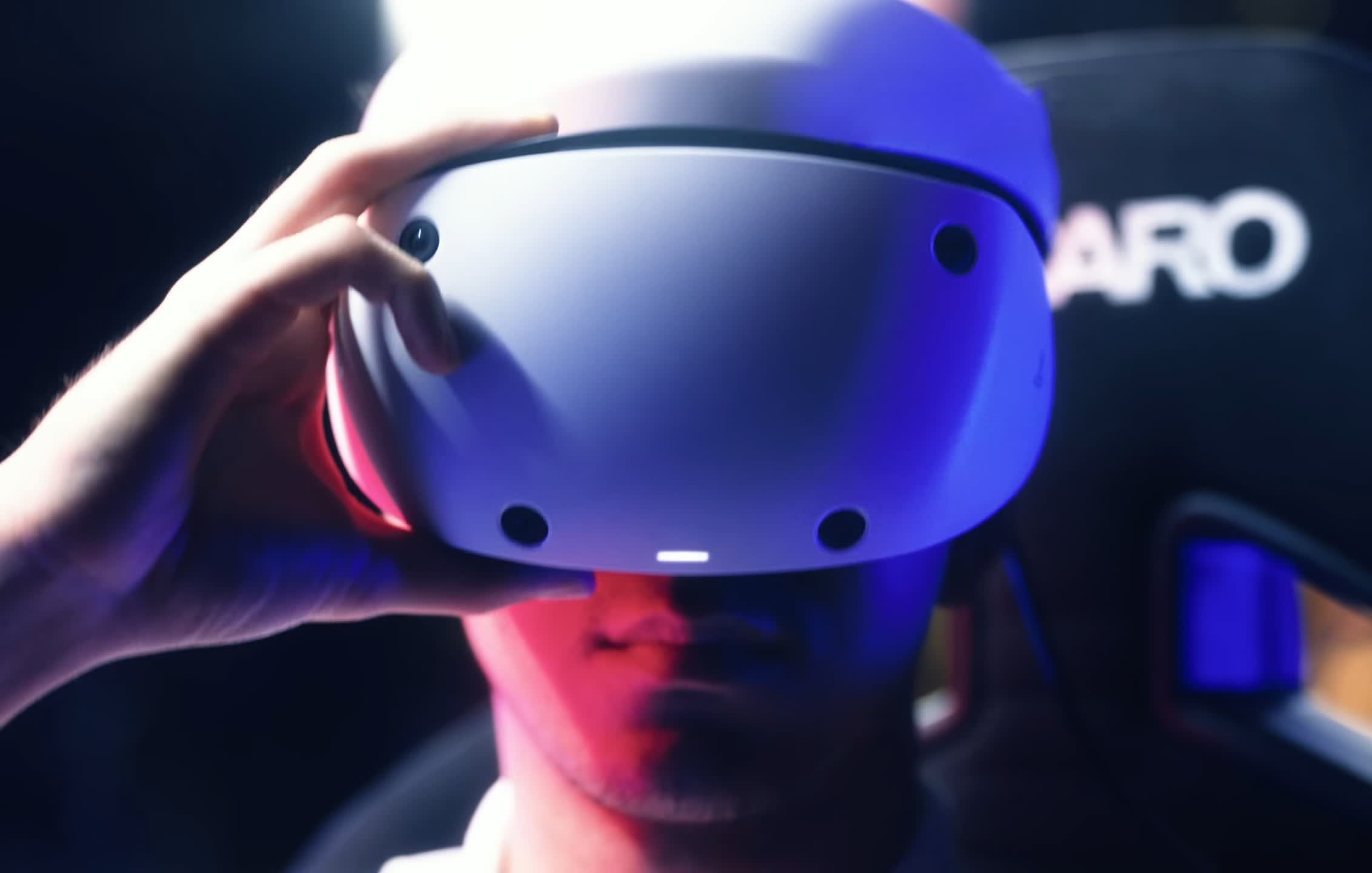Why it matters: As concerns grow regarding the future of VR gaming, Sony's decision to make its PlayStation 5 headset, the PS VR2, compatible with PCs could significantly impact the sector. Although no specific PC titles compatible with PS VR2 have been announced, the headset's pricing and eye-tracking functionality position it as a top contender in the PC VR gaming market.
Sony has confirmed it has started testing PC compatibility for its PS VR2 headset, which so far has been exclusive to the PlayStation 5. The company aims to enable PS VR2 owners to play PC games sometime this year.
The somewhat vague announcement came in the middle of an update on upcoming PS5 VR titles, but it could carry significant implications. If Sony's headset supports platforms like SteamVR and OpenXR, it could emerge as a formidable competitor among PC headsets.
When Sony launched the product in early 2023, reviewers praised its high screen resolution and reasonable price but criticized Sony's choice to restrict it to the PlayStation 5 and its relatively limited library of VR games. Making the device compatible with PCs and the extensive range of PC VR software could be the right strategy to expand PS VR2's reach and appeal.

Although the PlayStation maker didn't mention what titles might support PS VR2 on PC, many multiplatform games already offer VR experiences on consoles and PCs, such as Tetris Effect and No Man's Sky. However, enabling PC compatibility in a way similar to the Meta Quest 2 and 3 would introduce notable games not currently playable on PS VR2, like Half-Life: Alyx, Microsoft Flight Simulator, Myst, and many more.
Moreover, PlayStation VR 2 compares favorably to the current selection of PC VR headsets. With a resolution of 2,000 x 2,040 per eye, a maximum frame rate of 120Hz, OLED screens, and a 110-degree field of view, its specs closely resemble the $500 Meta Quest 3 while costing $50 more. Although Sony's headset isn't standalone, it includes eye-tracking – a feature not found on the Quest 3, HTC Vive Pro 2, or Valve Index. The Meta Quest Pro supports eye-tracking but costs nearly twice as much as the PS VR2.
Sony's eye-tracking capability could bring foveated rendering to a broader audience of PC VR users. This technique renders only the portion of the screen the user is looking at in full resolution, potentially conserving horsepower and improving performance. Furthermore, software leveraging eye-tracking could enable users to interact with inputs solely through eye movements, a capability Apple has successfully showcased with its $3,500 Vision Pro mixed reality headset.
